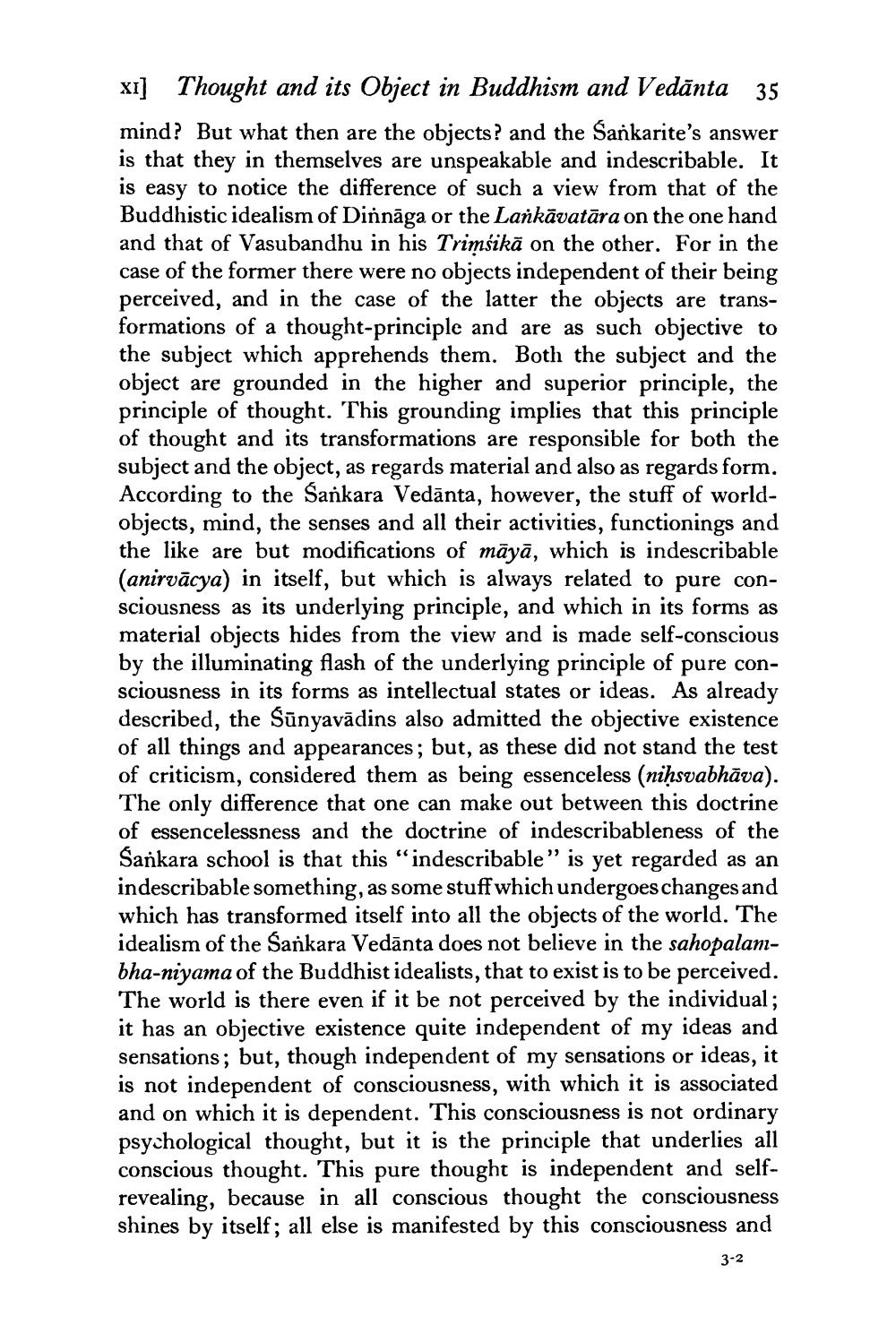________________
XI] Thought and its Object in Buddhism and Vedānta 35 mind? But what then are the objects? and the Sankarite's answer is that they in themselves are unspeakable and indescribable. It is easy to notice the difference of such a view from that of the Buddhistic idealism of Dinnāga or the Lankāvatāra on the one hand and that of Vasubandhu in his Trimsikā on the other. For in the case of the former there were no objects independent of their being perceived, and in the case of the latter the objects are transformations of a thought-principle and are as such objective to the subject which apprehends them. Both the subject and the object are grounded in the higher and superior principle, the principle of thought. This grounding implies that this principle of thought and its transformations are responsible for both the subject and the object, as regards material and also as regards form. According to the Sankara Vedānta, however, the stuff of worldobjects, mind, the senses and all their activities, functionings and the like are but modifications of māyā, which is indescribable (anirvācya) in itself, but which is always related to pure consciousness as its underlying principle, and which in its forms as material objects hides from the view and is made self-conscious by the illuminating flash of the underlying principle of pure consciousness in its forms as intellectual states or ideas. As already described, the Sūnyavādins also admitted the objective existence of all things and appearances; but, as these did not stand the test of criticism, considered them as being essenceless (niņsvabhāva). The only difference that one can make out between this doctrine of essencelessness and the doctrine of indescribableness of the Sankara school is that this "indescribable" is yet regarded as an indescribable something, as some stuffwhich undergoes changes and which has transformed itself into all the objects of the world. The idealism of the Sankara Vedānta does not believe in the sahopalanbha-niyama of the Buddhist idealists, that to exist is to be perceived. The world is there even if it be not perceived by the individual ; it has an objective existence quite independent of my ideas and sensations; but, though independent of my sensations or ideas, it is not independent of consciousness, with which it is associated and on which it is dependent. This consciousness is not ordinary psychological thought, but it is the principle that underlies all conscious thought. This pure thought is independent and selfrevealing, because in all conscious thought the consciousness shines by itself; all else is manifested by this consciousness and
3-2




